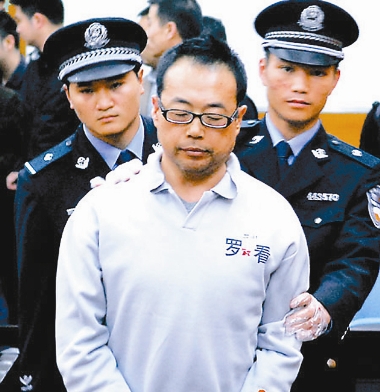Who's here
Saturday, October 30, 2021
Friday, October 29, 2021
Two Mao Zedong Maxims
造反有理 。It is righteous to rebel.
镇压群众运动的没有好下场。It is bad to put down a mass revolt.
Thursday, October 28, 2021
China influence in Europe - China watchdogs

A great European China-watchdog:
https://chinaobservers.eu
http://risap.ro/en/china-doesnt-understand-democracy-rule-law/
Beijing artist dodges CCTV cameras for project created in defiance of China’s surveillance system
Beijing artist dodges CCTV cameras for project created in defiance of China’s surveillance system
Saturday, October 23, 2021
Chinese tea - dialogue intermediate Chinese

饮茶
中国茶以色,香,味,而闻名于世。你喜欢喝茶吗?
喜欢。在各种中国茶中,我最喜欢喝红茶。
中国的茶文化已经有4000年的历史了,最著名的就是绿茶,红茶,乌龙茶和花茶。
饮茶既是一种艺术也是一门学问。让我来考考你吧。有一种茶有个美丽的名字,叫做飘雪piāoxuě。你知道这是哪种茶吗?
是来自北方的茶吗?因为北方天气寒冷hánlěnɡ还下雪.
不是。这是一种茉莉花茶的名字。
红酒

红酒hónɡ jiǔ
周末的聚会jùhuì我们准备些红酒怎么样?
可以呀,喝红酒还有许多好处呢。
没错。红酒可以促进cùjìn消化xiāohuà,促进睡眠,养颜yǎnɡyán美容,还有减肥jiǎnféi的功效ɡōnɡxiào.
是吗?怪不得有很多女性喜欢喝红酒。
是的,但也有坏处,过量饮酒ɡuòliànɡ yǐnjiǔ会导致血脂升高,提高患心血管疾病xīnxuèɡuǎn jíbìnɡ的风险。
看来过度饮酒会损害sǔnhài身体,还是应该适量
那我们准备一瓶红酒就足够了。
双减
你知道近期出台的"双减"政策zhènɡcè吗?
我不太了解,你能给我讲讲吗?
政策zhènɡcè要求不能开设针对小学,初中学生的课外培训péixùn班。这样做是为了给学生减轻负担jiǎnqīnɡ fùdān。
近几年,这种课外培训péixùn班确实很受家长欢迎。不仅学生压力大,家长也有压力。
没错。长时间的学习,孩子的身体健康jiànkānɡ也会受到影响
减负jiǎnfù对孩子们的身心健康很重要。
Friday, October 22, 2021
Rape (强奸) culture in China
宋山木强奸事件
- 参考资料
Song Shanmu - Rape culture among china's elite
Entrepreneur accused of raping young intern
A high-profile entrepreneur who founded one of China's largest multinational private training study companies is now under police investigation for allegedly raping one of his interns and sexually harassing several other female staff members.
Song Shanmu, 46, the president of the Sunmoon Lifelong Education Group, is now at a police station for investigation in Shenzhen City in Guangdong Province, the Southern Metropolis Daily reported yesterday.
He was summoned immediately back to the city from his study in Beijing after 22-year-old Luo Yun called the police saying she was raped on May 3.
Song allegedly deceived her into going to his apartment in a remote mountain area to do some cleaning work. After they arrived there, he threatened to kill her and then took pictures of her naked and raped her, she said.
Luo was a junior student in east China's Anhui Province and began teaching English at the company last year. She applied for a resignation but was turned down by Song, who kept arguing with her on their way to his apartment.
Police have found two bloody towels and one massage stick in the room at the apartment in Luohu District.
Song often seduced or forced female staff members to take porn pictures and then threatened them to have sex, said a staff member who claimed to be working at a branch of the company.
A post at Sina.com in 2008 accused Song of frequent rapes and collecting thousands of porn pictures of his female employees.
Sursa articolului
http://www.china.org.cn/china/2010-05/14/content_20042323.htm
| City education group founder jailed for rape |
| 2011-October-17 08:53 Shenzhen Daily |
 A FORMER president of a well-known training institute in Shenzhen was sentenced to four years in jail for raping his subordinate. The final judgment of Shenzhen Intermediate People’s Court maintained the ruling in the first instance and ordered Song Shanmu, founder and former president of Shenzhen Sunmoon Education Group, to pay the victim, a woman surnamed Liu, 4,205 yuan (US$617) in compensation. The verdict handed down by the court Friday said Liu, an English training teacher and receptionist for the group, wanted to resign but Song rejected her resignation and raped her in his apartment in Luohu on May 3 last year. The Luohu District People’s Court had sentenced Song to four years’ jail for rape in December but he appealed to the Intermediate People’s Court saying the first instance trial did not provide sufficient evidence showing he had sex with Liu against her will. In the second trial, Song demanded a lie detector test which was rejected by the court. Song appealed the court decision. Sunmoon was founded in 1991 and now has more than 200 schools in China offering training courses in computers, languages and accounting. Since Song’s sentencing, numerous Chinese netizens have expressed disgust with the education icon’s behavior. One Internet user from Jinan in Shandong Province posted: “Never go to Shanmu Training!!! Beware of being raped by perverts.”(Han Ximin) Sursa articolului: http://www.szdaily.com/content/2011-10/17/content_6148607.htm |
Wednesday, October 20, 2021
Wednesday, October 13, 2021
Cum influenteaza guvernul Chinez ce se preda in universitatile din lume
Cum influenteaza guvernul Chinez ce se preda in universitatile din lume
State/Education Departments Concerned About Chinese Confucius Institute Programs In American Schools
The Trump administration on Friday encouraged U.S. schools and colleges to rethink their ties to the Confucius Institute, a program that brings Chinese language classes to America but, according to federal officials, also invites a “malign influence” from China.
In letters to universities and state education officials, the State Department and Education Department said the program gives China a foothold on U.S. soil and poses a threat to free speech. Schools are being advised to examine the program's activities and “take action to safeguard your educational environments.”
Teachers who are vetted and paid by the Chinese government “can be expected to avoid discussing China’s treatment of dissidents and religious and ethnic minorities,” the officials wrote.
“The presence of this authoritarian influence on our campuses has never been more concerning, nor more consequential,” officials wrote in the letters, which were signed by Secretary of State Mike Pompeo and Education Secretary Betsy DeVos.
More than 60 U.S. universities host Confucius Institute through partnerships with an affiliate of China's Ministry of Education. China provides teachers and textbooks and typically splits the cost with the university. The program also brings Chinese language classes to about 500 elementary and secondary classrooms.
The program has drawn mounting scrutiny from U.S. officials amid ratcheted tensions with China. In August, the State Department labeled the program's national office as a foreign mission of the Chinese Communist Party, which requires the program to submit reports about its operations and spending in the United States.
In Friday's letters, U.S. officials drew attention to China's new national security law in Hong Kong, which critics say curtails free expression and other liberties. The letters cite recent reports that some U.S. college professors are allowing students to opt out of discussions on Chinese politics amid fears that students from Hong Kong or China could be prosecuted at home.
Such fears are “well justified,” officials said, adding that at least one student from China was recently jailed by Chinese authorities over tweets he posted while studying at a U.S. university.
The Confucius Institute U.S. Center did not immediately respond to an emailed request for comment.
DeVos and Pompeo echoed longstanding complaints from academic groups that say schools give China too much control over what's taught in Confucius Institute classes. Teachers who are vetted and paid by the Chinese government “can be expected to avoid discussing China’s treatment of dissidents and religious and ethnic minorities,” the officials wrote.
“Confucius Institutes are branded as Chinese language and cultural learning centers, but there is increasing evidence that they are also tools of malign PRC influence and dissemination of CCP propaganda on U.S. campuses,” officials said, referring to the People's Republic of China and the Chinese Communist Party.
The letters do not explicitly urge schools to cut ties with the Confucius Institute but say the measure could avoid problems. Officials said many schools have built “excellent Chinese language and culture programs” without the Chinese government.
The move marks the Trump administration's latest attempt to curb China's presence in the U.S. amid a battle over trade, the coronavirus and human rights issues. Authorities have also asked universities to help stop the theft of trade secrets by scholars tapped by the Chinese government.
Once hosted at more than 100 universities, Confucius Institute has been closed on many campuses amid a drumbeat of criticism. At least 39 universities have announced plans to shutter programs since the start of 2019, according to a log published by the National Association of Scholars, a conservative nonprofit group.
Some of the closures were prompted by a 2018 defense bill that barred universities from using Defense Department money to support Chinese language programs if they also hosted a Confucius Institute. At the University of Maryland, which founded the nation’s first Confucius Institute in 2004, officials cited the bill in their decision to end the program this year.
Last year, a bipartisan Senate report encouraged all universities to cut ties with the Confucius Institute unless Chinese officials provided more transparency around the program and offered the U.S. equal opportunities for cultural outreach in China. Soon after, DeVos launched a crackdown on foreign gifts and contracts to U.S. universities, often focusing on financial ties to China.
Other nations have also sought to curb China's influence in their schools. In August, Australia’s most populous state, New South Wales, cut ties with the Confucius Institute and replaced the program with one funded by the state government. Canada's New Brunswick province has also announced it will end the program in its public schools.
Sursa articolului:
https://www.air1.com/news/u-s-and-world/state-education-departments-concerned-about-chinese-confucius-institute-programs-in-american-schools-16880
Republicans press education secretary on China's foothold in US universities
During the Trump administration, the Education Department opened investigations into schools including Harvard and Yale
Reps. Jim Banks, R-Ind., and Virginia Foxx, R-N.C., pressed Education Secretary Miguel Cardona for answers about his department's plans to investigate China's financial foothold in the U.S. university system.
"The American public deserves to know that their money is not being compromised by Communist China and other adversarial nations," the Republicans wrote in the letter sent on Wednesday. "The FBI warned colleges a decade ago about how hostile actors use campuses for spying, propaganda hubs, and faculty recruitment. Unfortunately, too many institutions failed to take this warning seriously."
"The previous administration modernized the reporting process and found over $6.5 billion in unreported gifts and contracts and opened 19 university investigations. However, the Department has closed only four of those investigations to date. Moreover, you have not started or provided status updates on any other investigations into foreign gifts or contracts," the letter continued.
The lawmakers demanded information including the number of staff analyzing the Higher Education Act's foreign gift and contract disclosure requirements, the total amount of reported foreign gifts and contracts in the Jan. 31 reporting period, and whether the Department has opened any related university investigations. Banks and Foxx asked Cardona and his staff to respond to them within two weeks.
"The lack of progress we have seen on this issue since your confirmation as Secretary is alarming, and we are concerned the Department is not treating threats from China and other adversarial nations seriously," Banks and Foxx wrote to Cardona.
The investigations hinge on Section 117 of the Higher Education Act, which requires schools to report foreign gifts and contracts over $250,000. During the Trump administration, the Education Department opened investigations into schools including Harvard and Yale over unreported foreign funds from countries including China.
This isn't the first time Republicans have demanded answers on the topic. In 2020, House Republicans demanded information from former Education Secretary Betsy DeVos about what they said is the Chinese Communist Party's "investment in American colleges and universities to further its strategic and propaganda goals."
Banks has focused on the issue for quite some time, including by raising concerns about Huawei research partnerships at U.S. universities in 2018. Banks is also the author of a bill called the "Protect Our Universities Act."
"Under this law, students from nations deemed a threat – China, Russia, Iran, and North Korea – will need to apply for a waiver granted by the Director of National Intelligence (DNI) to participate in sensitive research projects funded by the Department of Defense, Intelligence Community, and Department of Energy," Banks' office said in a press release.
Fox News' inquiry to the Education Department was not returned at the time of publication.
Sursa artiolului:
https://www.foxnews.com/politics/republicans-education-china-us-universities-miguel-cardona-banks-foxx
Scholars: China gov’t gets foothold on US campuses
WASHINGTON (AP) – China’s authoritarian government is gaining a foothold on American campuses by funding dozens of institutes that project a rose-tinted view of the Asian nation that compromises the academic integrity of U.S. universities, a congressional hearing was told Thursday.
Scholars of China testified that these state-funded Confucius Institutes teach nonpolitical subjects like Chinese language and culture but suppress discussion on sensitive topics like Tibet and the 1989 Tiananmen crackdown on democracy protesters.
The hearing was chaired by House Republican Rep. Chris Smith, an arch critic of Beijing, who questioned whether American education was “for sale.”
Students from China now make up 31 percent of all international students in the United States. Last year, Chinese students in U.S. colleges and universities contributed $8 billion to the U.S. economy, according to the Commerce Department.
U.S. colleges such as New York University are also opening campuses in China, hoping to tap into the country’s enormous, growing pool of students.
Geng Shuang, spokesman for the Chinese Embassy in Washington, said China-U.S. educational exchange is carried out on a voluntary basis and respects the academic independence and integrity of all educational institutions.
Perry Link, a China expert at the University of California at Riverside, said independent scholar-to-scholar exchanges with China should be encouraged.
But he said the Communist Party of China opposes the exchanges and prefers to negotiate campus-to-campus cooperation. He said inexperienced U.S. academic administrators, eager for funding, reach protocols with party officials that allow authorities in Beijing to choose teachers and set curricula that provide a rosy “cameo” of China.
Thomas Cushman, a professor in social sciences at Wellesley College, said the Chinese government’s effort to forge ties with U.S institutions is part of a more general “soft power” strategy toward the West.
There are now about 90 Confucius Institutes in the U.S., part of an expanding network of more than 400 worldwide. Geng, the embassy spokesman, said the institutes help people learn about Chinese language and culture and strengthen cooperation between China and other countries.
But there has been some push back from scholars and colleges in the U.S. In June, the American Association of University Professors called on universities to cancel their current agreements with Confucius Institutes, and this fall the University of Chicago and Penn State ended their relationships with the institute.
The Chinese state-funded outreach comes amid growing restrictions on scholars at home as President Xi Jinping’s government has tightened controls over a wide range of society since he took power early last year.
“For decades, the primary strategy of the CPC in censoring its own people has been to induce self-censorship,” Link said, referring to the Communist Party of China. “Now the CPC, stronger and wealthier than before, is looking to project these battle-tested methods onto the world stage.”
Cushman said U.S. scholars of China are careful what they say in public so they can keep visiting. He said that leads to a “beautified” version of China that avoids the realities of repression.
Link said he’s been blacklisted since the mid-1990s and gets two or three inquiries per month from younger scholars wanting to know what they should avoid saying in order not to be barred.
Cushman also contended that professors on U.S. campuses may avoid discussing sensitive tops about China in their classes out of fear of negative evaluations by the growing number of Chinese students.
Sursa articolului:
https://www.timesleaderonline.com/opinion/columns/2014/12/scholars-china-gov-t-gets-foothold-on-us-campuses/










